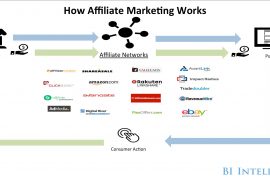Technology have seen massive advancement these past years. That includes the “Internet of Things”, which involves automated interaction or data transfer between stations. Think of Google Home and the environment it creates, or the automated bitcoin wallets devices used for gesamten Handel. These devices and machines function automatically even without human intervention.
Thing is, many worry about the security and privacy risks these items bring. Note that they’re connected to the web, hence hackers may infiltrate such devices without you noticing. Data usage of companies which manufacture such devices is another big issue to talk about as well.
But why do security and privacy vulnerability plague these devices? Read on to understand this significant info, especially if you have these automated gadgets at home.
How does the Internet of Things Work?
Before discussing security and privacy concerns, you must understand how the Internet of Things function. It works by creating a network or environment of interconnected devices which carry Unique Identifiers (UIDs). UIDs enables a device, machine or even a living organism to transfer data automatically without human-to-human or human-to-computer intervention.

To understand it further, here are few examples of devices made to work with the Internet of Things:
- Smart Home Environment – this is probably the most popular example you know. with Google Home as a prime example. These systems enables you to create an environment of a smart home by interconnecting smart devices to each other. It may include lights, locks, thermostat, AC system and many other components in your home. And you can control them remotely, or program them so they’d function automatically even while you’re away.
- Smart Health Monitors – different companies have developed devices that tracks your health condition too. For example, Sony offers Life Blogger which allows you to monitor your overall health, so you’d know what you lack in terms of wellness and nutrition. Oral-B also offers a Bluetooth-capable toothbrush which automatically sends your brushing habit data to your dentist.
- Automated Security System – you don’t even need to rely on manual locks to keep intruders at bay today. Automated security systems are now available which provides better protection through its features. That includes HQ video recording of security camera footage, automated door and gate locks, and door intercoms among many other features. And yes, you can connect this type of security system to the internet, so you can control them remotely and for it to send you alerts while you’re away.
These are only few of the items and systems the Internet of Things have brought upon the society today. But looking closely, each poses security and privacy risks many people simply ignore. And you don’t want to commit such mistake.

3 Main Security and Privacy Concerns the Internet of Things has
Now, talking about the concerns of security and privacy in the Internet of Things, there are three main points you must think of:
- Device Security
How secure are the devices you have? This is a big question computer users and experts worry even far before the rise of the Internet of Things. You worry about hackers infiltrating your computers and mobile phones. You also worry about the security of your online accounts, such as on emails, social media and even you’re online banking app.
And since the devices or machines connected to the Internet of Things are, well, online, chances are hackers may make their way to them. Note that some of these devices are critical in terms of security, such as your security cameras. You don’t wish hackers to see you in your home through those supposedly helpful devices. Or, criminals remotely opening your locks after hacking it.
- Data Usage
Some devices connected to the Internet of Things gather data from your usage. You can verify if a particular device do this by checking its privacy policy and data usage. With the items and systems mentioned earlier, the Bluetooth toothbrush is a good example of this device. It gathers data from your brushing habits for your dentist to check.
Sounds simple, but some companies actually use such data in different ways for benefits. For example, they gather your data, link it with your location, and then show you selected ads when you browse the web. That affects your buying decision since you’d see ads that favors certain companies first.
Worst? Data selling or mining is a reality which many companies illegally commit. They sell your data to other companies, then such companies would bother you with their marketing schemes. Display ads you spot while browsing looks harmless, but some resort to calling you up with their agents.

- Data Storage
Now, let’s say you’ve buy a smart device from an honest company which uses your data properly. The next question is, how safe are those data on their hands? Yes, hackers don’t merely target individuals and their homes, but large conglomerates too.
Remember the MtGox disaster at the end of 2013? Around half a billion-dollar worth of bitcoin was hacked away from the system. Note that bitcoin runs on the block chain, which is a highly secured transaction platform. Hence, you have all the reason to doubt the storage system of a company, regardless of how they positively advertise it to the public.
Now, should you avoid using Devices running on the Internet of Things?
Those security and privacy risks certainly sounds scary, it shouldn’t stop you from enjoying the benefits of Internet of Things. However, always remember to be careful in choosing any device before buying, and don’t miss to reads privacy and data policies.
Moreover, use these smart devices wisely and with caution. For example, put extra layer of protection to your system, and don’t download suspicious files to your computer. That’s true especially if your computer or smartphone is connected to the Internet of Things for control purposes.
Lastly, avoid depending too much on the Internet of Things. Going manual can do wonders for you and your home too. For example, a simple but hardy lock can possibly keep an internet savvy intruder from breaking into your home.




